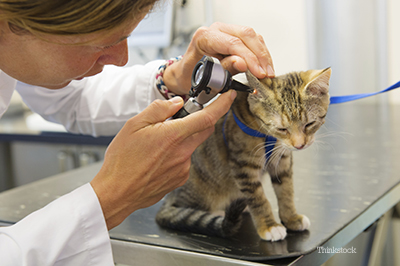Did you know that according to the American Veterinary Medical Association (AVMA), cats are brought to the veterinarian less often than dogs? Why is that? Is it because dogs outnumber cats? Or do cats really have nine lives and don’t need to go to the veterinarian?
Does America have more cats or dogs?
According to the AVMA, in 2017/2018, dogs outnumbered cats approximately 77.8 million to 58 million in US households. So, while the number of dogs in US households has surged since 2011, cats continue to be very popular, and there tend to be more cats than dogs in their respective households. Why then, do cats receive less veterinary care? Are they really healthier?
The barriers to veterinary care for cats
Many theories have been proposed to explain the discrepancy in veterinary care between cats and dogs. Unfortunately, being healthier or having nine lives is not one of them.
One of the proposed theories is based on the observation that cats are masters of hiding illness. In the “survival of the fittest” world of our domestic cat’s wild ancestors, it is believed that hiding illness gave them a survival advantage by masking weakness. As a result, our domestic cats have become skilled at hiding their symptoms until problems become very advanced. Unfortunately, without the specialized training of a veterinarian, cat parents can easily miss the subtle, early symptoms, and not visit the veterinarian when they need to.
Another reason why cats are brought to the veterinarian less often than dogs is based on the fear cat parents have that a visit to the veterinarian will be a stressful experience for their cat and themselves. Cats are smart, so it doesn’t take long for them to figure out what’s going on. If they don't want to go to the veterinarian, they will fight you tooth and nail. Anyone who has dealt with a fractious cat knows how quickly a cuddly kitty can transform into a fighting, clawing, biting fury of fur.
How can we get cats the veterinary care they need?
So what can you, as a cat parent, do to ensure your cat gets the level of veterinary care he deserves? Like dogs, cats need routine veterinary care to insure they are protected against preventable illnesses. The AAFP-AAHA Feline Life Stage Guidelines recommend that all cats have wellness examinations at least once a year, and more frequent visits may be recommended for senior or geriatric cats or cats with medical conditions.
So let’s address the barriers to veterinary care. First and foremost, people need to realize that routine veterinary care is equally as important—if not more so—for cats, as it is for dogs. Regular visits to your veterinarian allow her to examine your cat and look for the subtle signs of disease. This is especially important for cats, since they are masters at hiding illness. Your veterinarian will also order screening tests if indicated. For example, a senior and geriatric cat should have screening blood tests, urinalysis, and have his blood pressure measured in order to look for signs of kidney disease, diabetes, thyroid disease, etc. The prevalence of these diseases increases with age. Detecting these diseases early can result in a better long-term prognosis since many of the complications of advanced disease can be avoided with early treatment. Most people don’t realize that many diseases can be asymptomatic in the early stages, highlighting the importance of screening tests in seemingly healthy cats.
While it is true that bringing your cat to the veterinarian can be a stressful experience for both you and your cat, it should not become an excuse. After all, how many people actually look forward to going to the dentist? How many of us have kids that get excited about going to the doctor? Most of us hate going to the dentist, and most of us have kids that break into tears at the mere mention of a checkup. Yet we still go to the dentist and take our kids to the pediatrician because we know it’s important. The same should be true for your cat. Annual checkups are the best way to ensure that your cat is protected against preventable diseases, and also to detect diseases early when they are easier to treat.
Click here for tips on how to make a trip to the veterinarian less stressful.
Remember, routine examinations are important to your cat’s health. If your cat hasn’t been to the veterinarian in the last year make an appointment today. Routine preventive healthcare is the best way to ensure your cat lives a long and healthy life.
[Editor’s note: August 22nd is “Take Your Cat to the Vet Day!”]
If you have any questions or concerns, you should always visit or call your veterinarian -- they are your best resource to ensure the health and well-being of your pets.
